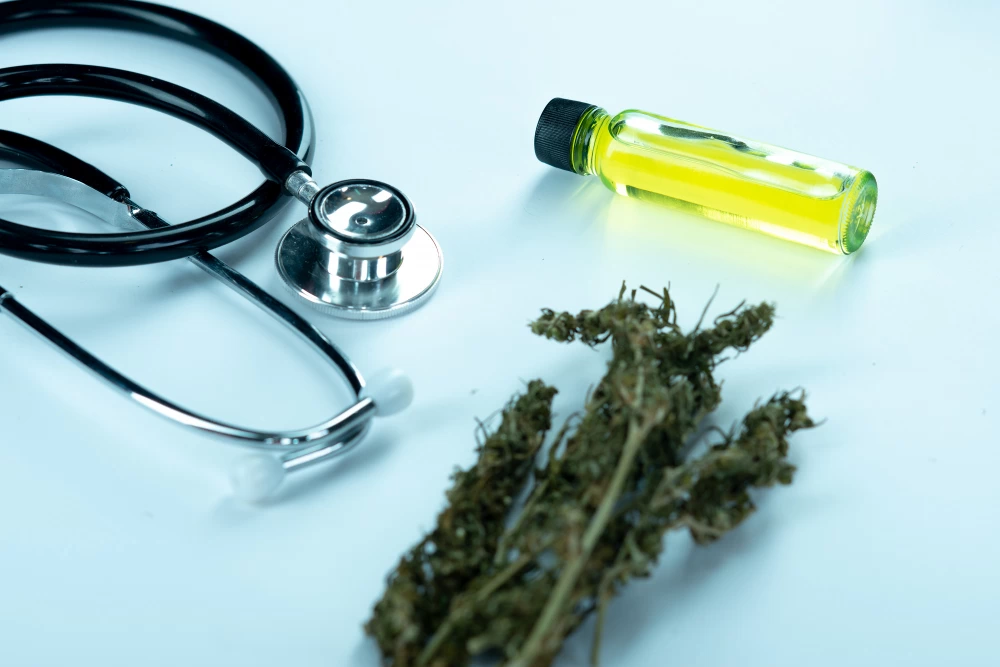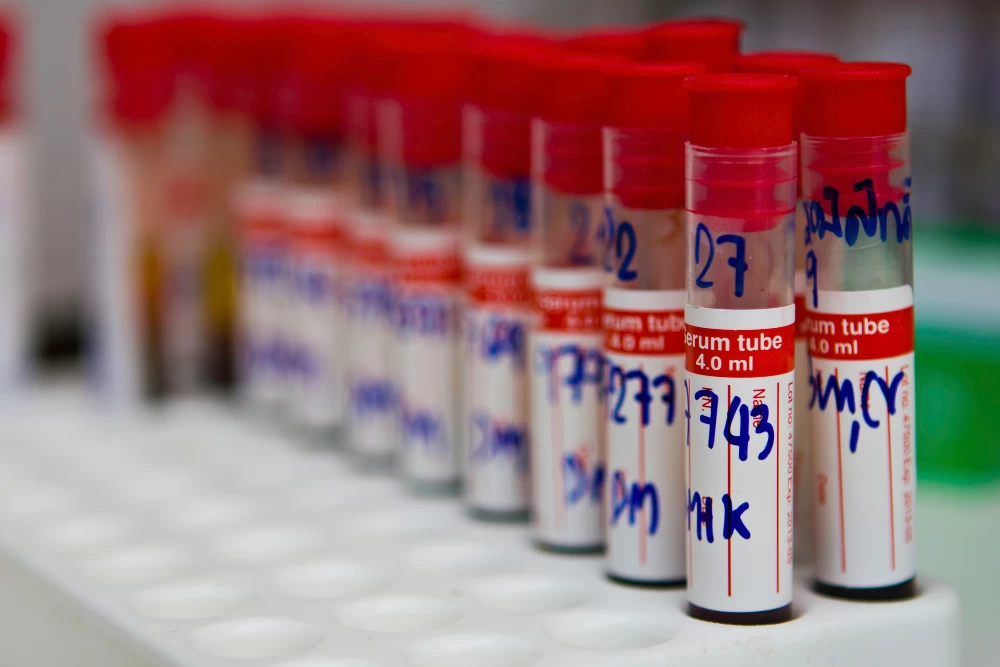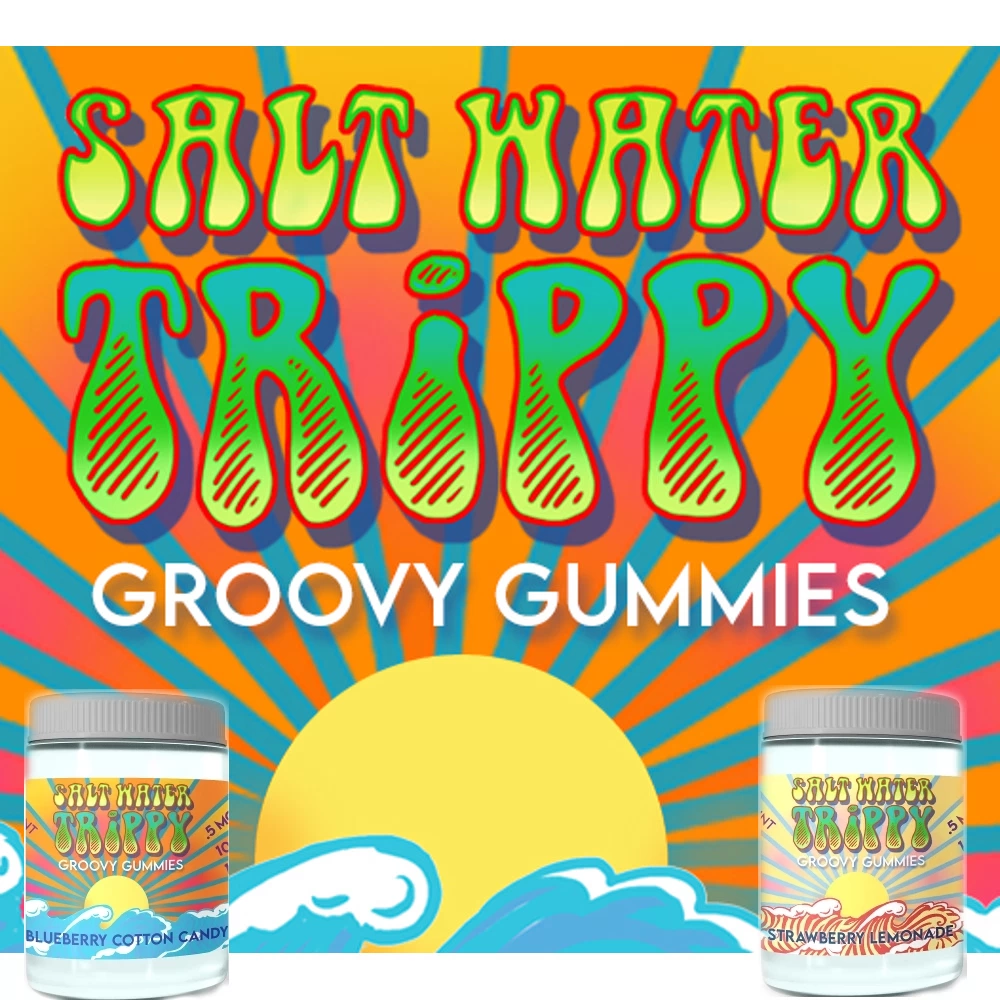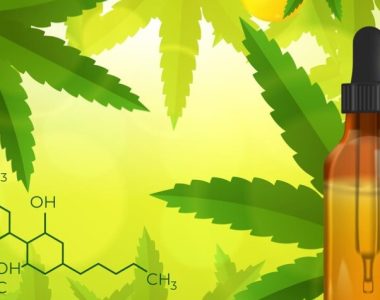Today, we delve into the intriguing world of THC vs THCP, two compounds that have been making waves in the cannabis community. Are you curious about their differences? Wondering about their medical uses? Are you concerned about drug tests?
Don’t worry! We’ve got you covered with everything you need to know about THC vs THCP. Let’s begin.
What is THC and THCp?
What are THC and THCP? Let’s start with the familiar one – THC, short for delta-9-tetrahydrocannabinol. It’s the most well-known cannabinoid found in cannabis plants and is responsible for producing the famous psychoactive effect commonly associated with marijuana use.
THC interacts with receptors in our brain, explicitly targeting the CB1 receptors, primarily located in areas related to memory, coordination, pleasure, and thinking. This interaction leads to a cascade of effects that can leave users feeling euphoric or relaxed.
Now, let’s turn our attention to THCP – an acronym for tetrahydrocannabiphorol. THCP is a relatively new addition to the world of cannabinoids. It has been generating quite a buzz among researchers. Similar to THC, it also binds to CB1 receptors but appears to have a higher affinity for them.
The critical difference between THC and THCP lies in their chemical structures. While both compounds share similarities, such as having carbon atoms arranged in rings with attached hydrogens (terpenes), THCP boasts an elongated side chain compared to THC.
This structural variation may contribute to differences in how these compounds interact with our body’s endocannabinoid system. However, further research is needed before we can fully understand the unique properties of THCP compared to its more well-known counterpart.
The Differences Between THC vs THCp
THC (delta-9-tetrahydrocannabinol) and THCP (tetrahydrocannabiphorol) are both compounds found in cannabis, but they have some distinct differences. While THC is the most well-known psychoactive substance responsible for the “high” associated with marijuana use, THCP is a lesser-known cannabinoid that has recently gained attention.
One significant difference between THC and THCP lies in their chemical structures. THC has a pentyl side chain, while THCP has a heptyl side chain. This structural variation could potentially account for differences in potency and effects.
Another notable difference between THC vs THCp is that THCP binds more strongly to CB1 receptors in the brain than THC. That suggests it may have more potential for producing more substantial psychoactive effects.
Furthermore, research indicates that THCP may have a longer-lasting effect on the body than THC. Studies conducted on animals suggest that THCP can stay active in the system for an extended period compared to traditional THC.
It’s important to note that while both compounds interact with the endocannabinoid system, their specific mechanisms of action are not yet fully understood. More research is needed to understand better how these compounds affect our bodies and minds.
There are still many unanswered questions regarding the differences between THC and THCP. A further scientific investigation will be crucial in determining their unique properties and potential therapeutic applications.
Medical Uses of THC vs THCp
THC and THCP are two cannabinoids that have been gaining attention in the medical field for their potential therapeutic benefits. While both compounds interact with the body’s endocannabinoid system, they have distinct characteristics that set them apart.
THC, or delta-9-tetrahydrocannabinol, is well-known for its psychoactive properties and is primarily responsible for the “high” associated with cannabis use. However, it also has several medical benefits. Research suggests that THC can help relieve symptoms of pain, nausea, and vomiting induced by chemotherapy, muscle spasms in multiple sclerosis patients, and appetite loss in people with HIV/AIDS.
On the other hand, THCP (delta-9-tetrahydrocannabiphorol) is a newer compound that has shown promising results in preliminary studies. It has been found to potentially be more potent than THC itself due to its higher affinity for cannabinoid receptors.
Although more research is needed to understand its effects on the body, early findings suggest that THCP may benefit pain management and neuroprotection.
THC and THCP offer possibilities for improving various medical conditions but should only be used under professional guidance. The effectiveness of these cannabinoids varies from person to person due to factors such as individual biology and dosage.
As research continues to unfold regarding the therapeutic potential between THC vs THCp, it’s crucial to consult healthcare professionals before incorporating these substances into your treatment plan.
Remember: always prioritize safety when exploring alternative therapies. Consult your doctor or pharmacist for any conflicts with your current medications.
Is THCP Stronger Than THC?
One question that often arises when discussing THCP and THC is whether or not THCP is more potent than THC. It’s a valid concern, particularly for those looking for more powerful effects or enhanced therapeutic benefits.
THC (delta-9-tetrahydrocannabinol) is the primary psychoactive compound found in cannabis. It’s responsible for the “high” that users experience when consuming marijuana. On the other hand, THCP (tetrahydrocannabiphorol) is a newly discovered cannabinoid that has been gaining attention due to its potential potency.
While both THC and THCP interact with the endocannabinoid system in our bodies, research on THCP is still limited compared to decades of studies on THC. That makes it difficult to directly compare their strength levels accurately.
However, initial studies suggest that THCP may be more potent than THC due to its higher association with cannabinoid receptors. In theory, this could result in more potent effects at lower doses. However, further research is needed to understand how THCP affects different individuals and whether its potential potency translates into practical use.
It’s important to take note that individual responses can vary when it comes to cannabinoids like THC and THCP. Factors such as body chemistry, personal tolerance, or dosage can all affect the perceived potency and overall effects experienced by an individual.
While early indications suggest that THCP may have greater potency than traditional THC compounds, more research is required before definitive determinations can be made about its strength relative to standard cannabinoids found in cannabis and hemp products.
If you’re considering using either of these compounds medicinally or recreationally, it’s always best to consult a healthcare professional or expert who can provide personalized guidance based on your needs.
Does THCP Show Up on Drug Tests?
Drug tests are commonly used to detect the presence of various substances in a person’s system. But what about THC vs THCp? Will THCp show up on these tests? The answer is not so straightforward.
THCP, or tetrahydrocannabiphorol, is a newly discovered cannabinoid that has gained significant attention due to its potential therapeutic properties. However, since it is relatively new and research is still limited, there isn’t enough data to determine whether THCP can be detected in standard drug tests.
Most drug tests typically target THC (tetrahydrocannabinol), the psychoactive component found in cannabis that produces the famous “high” sensation. These tests focus on metabolites produced by THC when broken down by the body. Since THCP differs structurally from THC, it may not trigger positive results for THC during routine drug screenings.
However, it’s important to note that some highly specialized and sensitive drug tests might be able to detect THCP if specifically designed for this purpose.
Therefore, individuals who use products containing high levels of THCP should exercise caution and consider seeking legal advice or consulting with their employers regarding workplace policies and drug testing procedures.
While more research needs to be conducted concerning how THCP interacts with standard drug tests, it appears unlikely that it would show up as a false positive for THC on most conventional screening methods.
Nonetheless, suppose you have concerns about taking drug tests while using products containing THCP or any other cannabinoids derived from cannabis plants. In that case, seeking professional guidance explicitly tailored to your situation is essential.
Risks vs Benefits of THC vs THCp
When it comes to THC vs THCP, understanding the risks and benefits is crucial. Both compounds have unique effects on the body, and weighing these factors before deciding which one may be right for you is essential.
On one hand, THC has been widely studied for its potential medical benefits. It has shown promise in treating chronic pain, nausea from chemotherapy, muscle spasms associated with multiple sclerosis, and even reducing seizures in certain forms of epilepsy.
Additionally, some research suggests that THC might have anti-inflammatory properties and could potentially help with conditions like Crohn’s disease or rheumatoid arthritis.
However, it’s important to note that THC can also have adverse side effects. These can include impaired cognitive function, increased heart rate, dry mouth, red eyes, anxiety, or paranoia – especially at high doses or in individuals who are more sensitive to its effects.
THCP is a relatively new compound requiring further research to thoroughly understand its risks and benefits. Preliminary studies suggest that THCP may be more potent than THC when it comes to binding with cannabinoid receptors in the body. That means that lower doses of THCP might produce similar effects as higher doses of THC.
While this could offer benefits such as reduced dosing requirements for therapeutic use or enhanced efficacy for certain conditions, it raises concerns about potential unknown long-term effects or adverse reactions for individuals using higher concentrations of THCP without proper guidance from healthcare professionals.
As always, it is crucial to consult with a primary healthcare provider knowledgeable about cannabis-based treatments before making any decisions regarding your health.
Remember – everyone reacts differently to cannabinoids, and what works well for one person may not work the same way for another!
Weighing the risks of THC vs THCp versus the potential benefits is an individual decision that should be made based on thorough research and consultation with medical professionals who are experienced in cannabis-based therapies.
Safety and Precautions
When it comes to using THC vs THCP for medicinal purposes, it is essential to prioritize safety and take necessary precautions. While these compounds can offer potential benefits, knowing the risks is crucial.
First and foremost, always consult with a healthcare professional before incorporating THC vs THCP into your treatment plan. They can guide dosage, usage methods, and any potential interactions with other medications you may be taking. This step ensures that you are using these compounds safely and effectively.
Additionally, start with low doses when first trying THC vs THCP. Everyone’s body reacts differently to cannabinoids, so starting low allows you to gauge how your body responds without overwhelming effects. Gradually increase the dosage as needed under medical supervision.
It is also essential to understand that both THC and THCP can impair cognitive function and motor skills. Therefore, avoid operating heavy machinery or driving while under the influence of these substances.
Keep in mind that long-term use of high doses of THC has been associated with specific side effects such as addiction potential and memory impairment. Using these compounds responsibly and within guidelines set by healthcare professionals is recommended.
By following these safety measures and taking necessary precautions, individuals can minimize risks associated with THC vs THCP usage while responsibly maximizing their therapeutic benefits. Remember: always prioritize safety first!
More reading: What is the difference between Live Resin, Live Rosin and Liquid Diamonds
Ready to try THCp? Check out our popular Salt Water Trippy Gummies with THCp.








